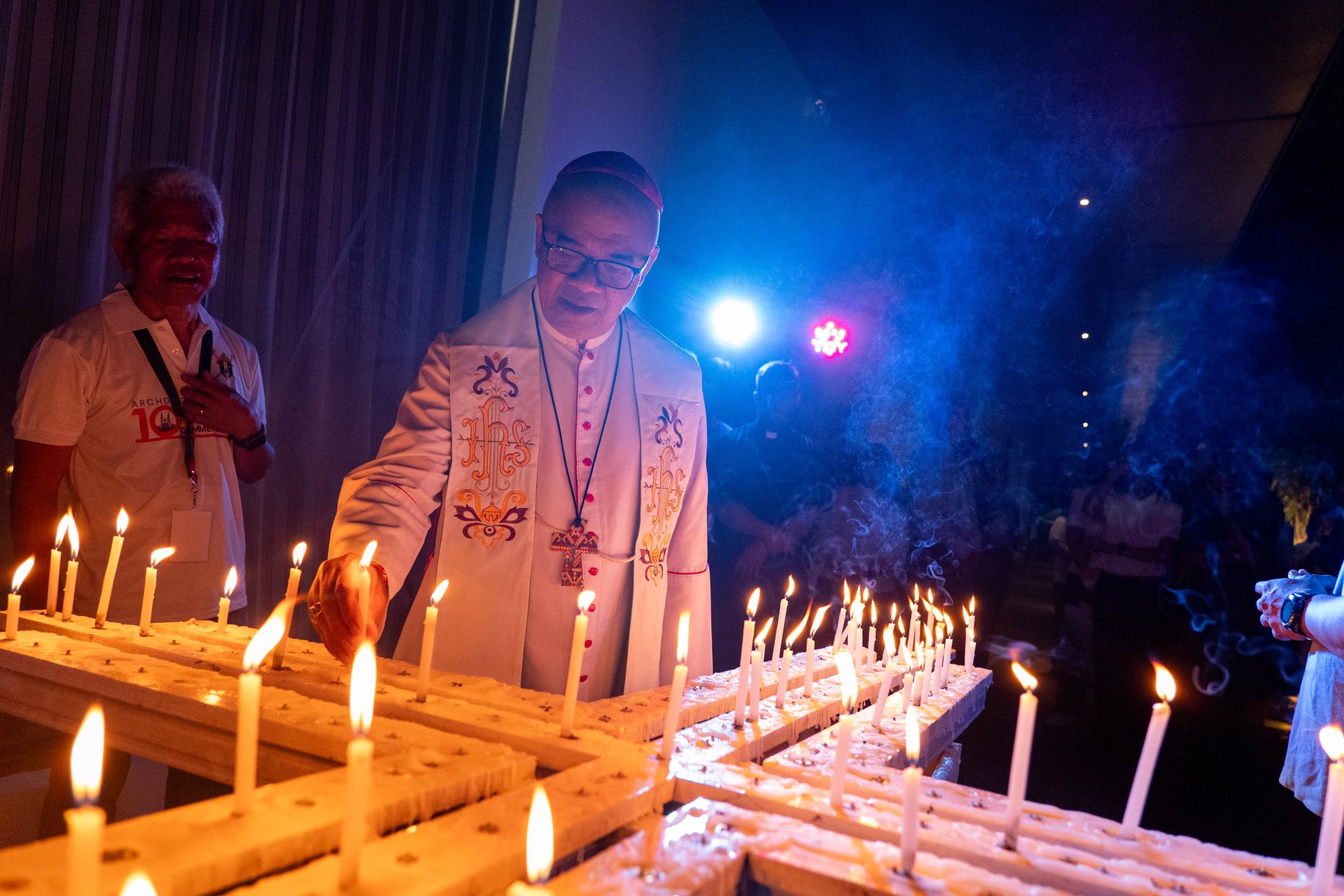In the coming weeks, the European banks financing fossil fuel infrastructure in the Verde Island Passage (VIP) will hold their annual general meetings.
As the head of the Laudato Si’ Program of the Catholic Bishops’ Conference of the Philippines, I will be in Europe to urge bank leaders to drop these harmful investments. I encourage local governments to stand with me.
We all know how beautiful the VIP is. For us Catholics, it is one of the places where the Creator’s hand can be clearly seen. But scientists tell us that its beauty is much more than skin deep.
The VIP is part of the “Coral Triangle.” It is home to 300 different coral species and 60% of all known shorefish species, making it the most biodiverse marine habitat on the planet.
An estimated two million people derive sustenance and other benefits from this abundance of life, according to Conservation International.
The infrastructure being built in the VIP includes a new liquefied natural gas (LNG) terminal and power plant. These are owned by San Miguel Corporation and Shell.
The banks supporting them are among the biggest names in European finance: HSBC, Standard Chartered, and Crédit Agricole. The backers of these projects claim that gas is clean and necessary to power homes and businesses. Both claims are false.
Gas is harmful to life. The fumes and waste from gas power plants are detrimental to local communities. Beyond that, gas is a fossil fuel that is accelerating the climate crisis.
How many more people must lose their homes—or even their lives—before we say, “No more fossil fuels”? At this point, building any new fossil fuel infrastructure is like throwing water on a drowning man.
Moreover, this gas is not needed to power homes and businesses because the Philippines can meet its energy needs through renewable sources.
On my island of Negros, for example, there is a geothermal plant that supplies electricity to Luzon and the Visayas. In addition, we have solar farms that, according to Oxfam, produce enough electricity to meet all our local needs.
The problem is not a lack of energy sources. It is a lack of government will to deliver that energy where it is needed. In Negros, we have yet to install the necessary transmission lines to distribute electricity to all our homes and businesses.
If the National Grid Corporation were to install proper infrastructure, we would enjoy abundant, clean, and low-cost electricity.
Rather than building gas infrastructure that harms both local communities and the broader population, we should invest in infrastructure that harnesses the sunlight, wind, and geothermal energy with which God has blessed us.
The banks financing fossil fuel infrastructure are aware that their projects harm us in the Philippines. They rely on being insulated by power and privilege.
That’s why I am traveling to Europe to attend their annual meetings. I want to look them in the eyes and tell them that the people of the Philippines will not allow these projects to continue.
There is precedent for resistance. In 2022, a coalition of young people and Catholic leaders in Negros defeated a gas power plant proposed by San Miguel Corporation—the same company now behind the VIP projects.
SMC withdrew its application for an Environmental Compliance Certificate after realizing that public opposition was strong. Today, Negros Oriental has a renewable energy code that offers incentives for renewable energy investments.
Investors like HSBC, Standard Chartered, and Crédit Agricole should take advantage of these incentives. By investing in renewable energy instead of fossil fuels, they can both make profits and promote the common good. There is no place for gas in our communities. There is no place for gas in a livable future.
Bishop Gerardo “Gerry” Alminaza of the Diocese of San Carlos in the central Philippines is the head of the National Laudato Si’ Program of the Catholic Bishops’ Conference of the Philippines. He is also the Vice President of Caritas Philippines, the social action and humanitarian arm of the Catholic Church in the country.







